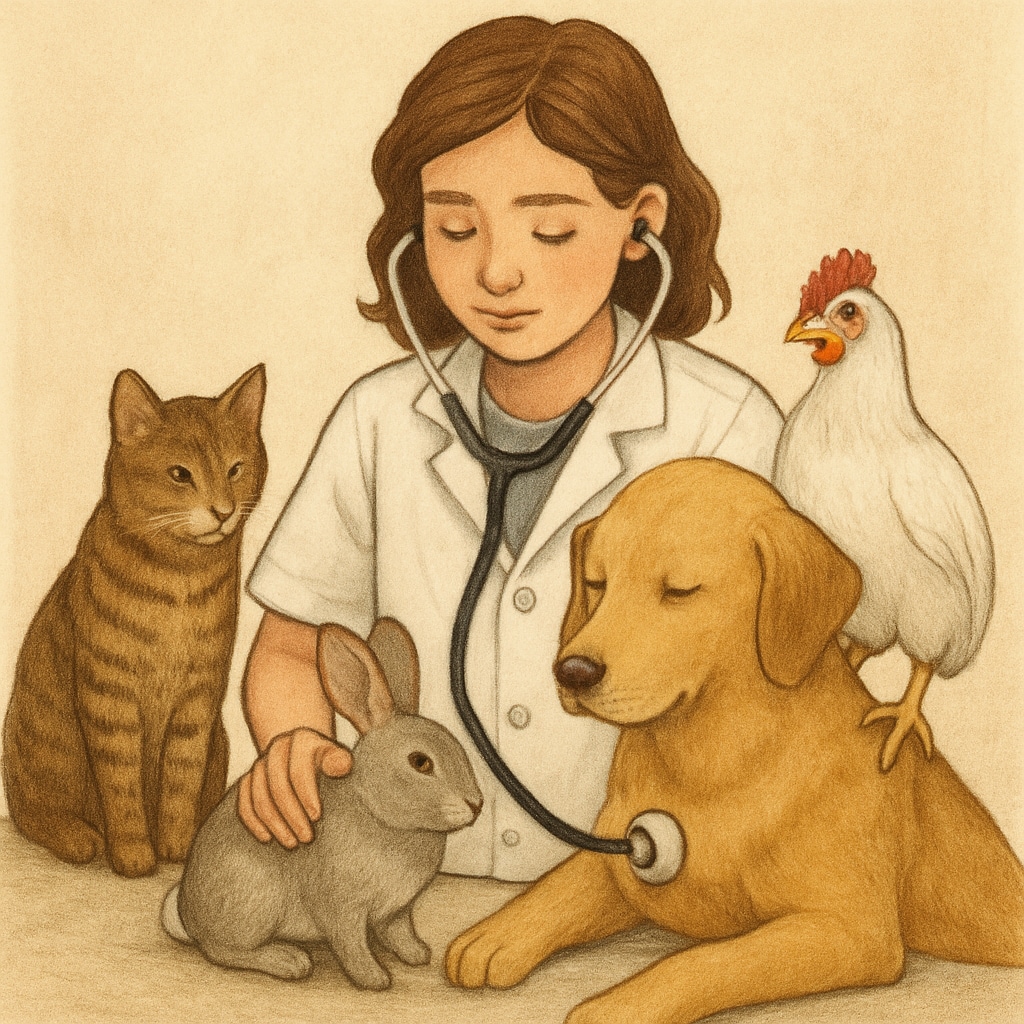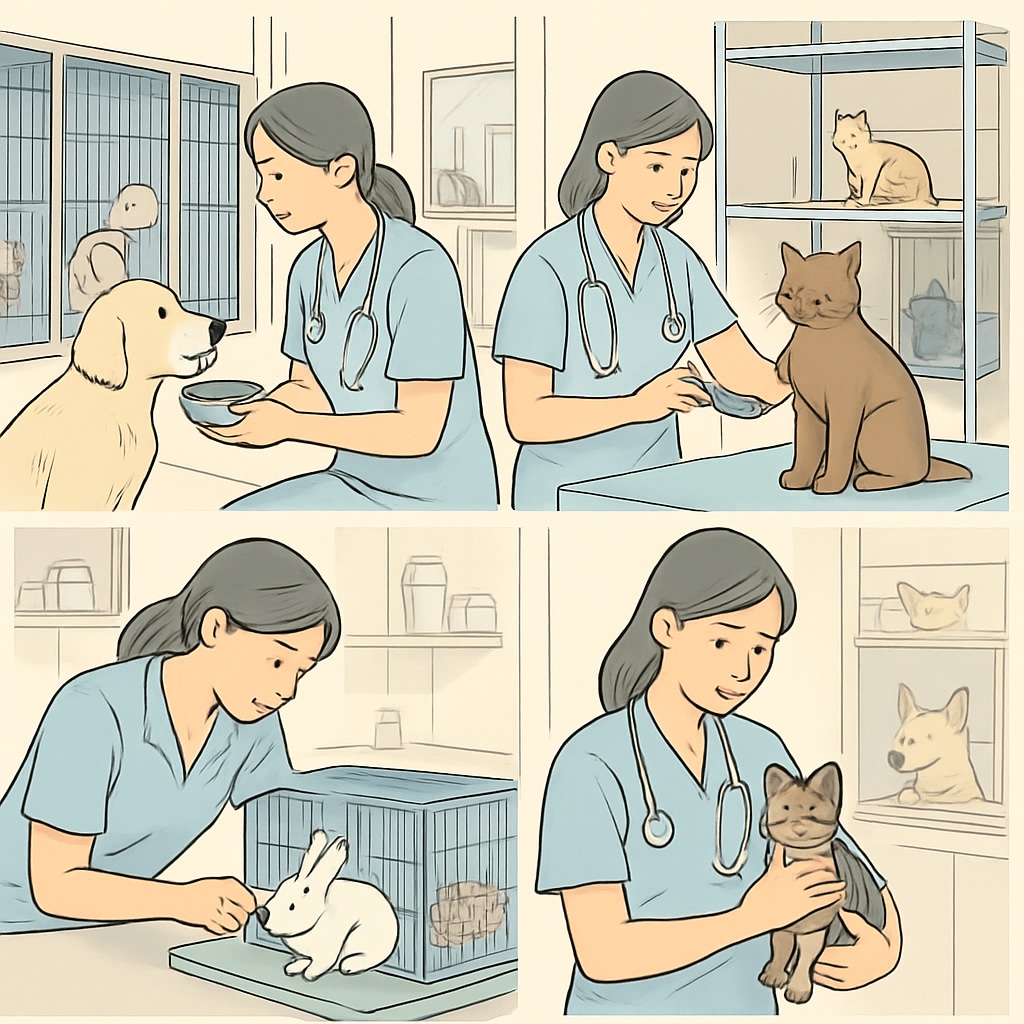For many young individuals, the lack of a GCSE certificate can feel like an insurmountable obstacle when pursuing a career in animal medicine. The GCSE exam is often a prerequisite for further education and vocational courses, creating systemic barriers that limit opportunities for those who struggle academically or face economic hardships. However, passion for animal care and veterinary science doesn’t need to be stifled by traditional educational structures. This article explores alternative routes, practical strategies, and resources to empower young minds to achieve their dream of working in animal professions despite these challenges.
Why GCSEs Are a Common Barrier in Animal Careers
GCSEs (General Certificate of Secondary Education) are a foundational qualification in many countries, particularly in the UK. They are required for most academic and vocational training programs, including those leading to careers in animal medicine. Without these certificates, students often face difficulties enrolling in higher education or specialized courses. For example, veterinary assistant programs or animal care diplomas frequently list GCSEs in subjects like biology, chemistry, and mathematics as mandatory prerequisites.
Unfortunately, not all students have equal access to the resources needed to succeed in these exams. Economic struggles, learning disabilities, or personal circumstances can prevent young people from achieving the grades required. As a result, their career aspirations may appear unattainable.

Exploring Alternative Pathways to Animal Medicine Careers
Although the traditional GCSE route is standard, there are several alternative pathways for individuals determined to work with animals. These include vocational courses, practical training programs, and non-traditional qualifications that focus on hands-on experience rather than academic achievement. Below are some practical strategies:
- Vocational Animal Care Courses: Many organizations offer entry-level animal care programs that do not require GCSEs. These courses provide basic training in handling and caring for animals, which can serve as a stepping stone toward more advanced roles.
- Apprenticeships: Apprenticeships allow students to gain practical, on-the-job training while earning a wage. In fields like veterinary nursing or animal welfare, apprenticeships often don’t require GCSEs and can lead to recognized qualifications.
- Online Learning Platforms: Platforms like Coursera or FutureLearn offer affordable or free courses in animal science, veterinary basics, and related topics. These can help build foundational knowledge to supplement practical experience.
- Work Experience and Volunteering: Gaining hands-on experience through volunteering at animal shelters, farms, or veterinary clinics can provide valuable skills and prove commitment to potential employers or training institutions.
- Functional Skills Qualifications: For those who struggle with GCSEs, functional skills qualifications in English and mathematics can serve as an alternative. These are often accepted by vocational programs and employers as equivalent to GCSEs.
Building a Career Without GCSEs: Success Stories
Many individuals have successfully entered animal medicine careers through alternative routes. For example, some veterinary assistants began their journey as volunteers at animal shelters, where they developed practical skills and networked with professionals in the field. Others pursued apprenticeships, which allowed them to bypass GCSE requirements while gaining valuable industry experience.
Additionally, some organizations actively support learners without traditional qualifications. For instance, RSPCA and similar animal welfare charities offer training programs that focus on practical skills rather than academic credentials. These programs can lead to fulfilling roles in animal rehabilitation, rescue, and conservation.

Final Thoughts: Turning Passion into Achievement
Pursuing animal medicine careers without GCSEs is challenging but not impossible. By exploring alternative pathways, building practical experience, and seeking out supportive organizations, passionate individuals can overcome systemic barriers and achieve their dreams. The key lies in persistence, creativity, and a willingness to embrace non-traditional routes.
For young people passionate about animal welfare, there are always opportunities to make a difference. Whether through vocational training, apprenticeships, or volunteer work, the journey to a career in animal medicine is accessible to those who refuse to give up on their dreams.
Readability guidance: This article has been structured with short paragraphs, clear subheadings, and actionable advice. It avoids excessive academic jargon and focuses on practical, real-world strategies for those navigating non-traditional educational paths.


